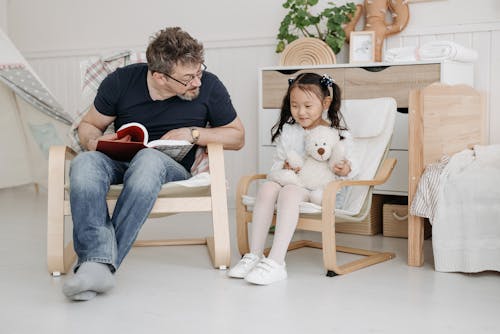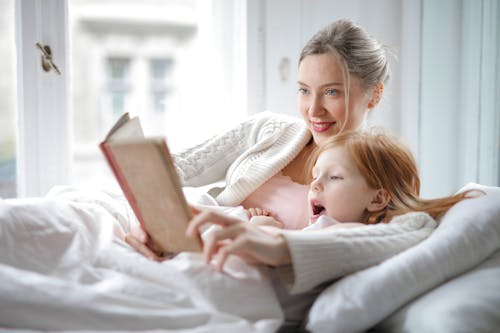Were you big into reading as a child or is it something you’ve picked up only more recently? Maybe you’ve only just rediscovered a love of books after a childhood love of them faded away in your teenage years.
But more importantly – did your parents read to you as a child?
A study seems to suggest that if your parents read aloud to you in your early years, you may have had a significant advantage in terms of your cognitive development.

We all know that reading is great for developing literacy, having a good vocabulary and even nurturing a vivid imagination – but being read aloud to may have actually increased your brain power!
The Melbourne Institute of Applied Economic and Social Research found that children who were frequently read to at a young age thrived in school, regardless of their family background or home environment and that language, numeracy and cognition were all significantly positively impacted by being read to every day. They also found that reading to children 6-7 days per week when they’re between the ages 4-5 had the same effect in terms of their cognitive ability as being 12 months older than peers who were not read to – which is pretty crazy stuff!

The way it works, according to Melbourne Child Psychology School, is that when we’re read to at a young age, our brains do something called ‘brain-imaging’. The brain’s activity goes up because we’re imagining and interpreting at the same time. So when young children hear ‘The duck jumped into the pond’, they’re putting together the images – ‘I know what a duck looks like and I know what a pond looks like. How do I put them together?’ The areas of the brain associated with visual processing have to work harder, especially if they’re not looking at a picture book.
Activating the imagination like this without the visual stimulation of picture books means that children move onto independent reading of non-picture books themselves more quickly also. The language benefits alone are huge, as some researchers in Ohio State suggest that children who are read to may have heard as many as a million words more than their peers by kindergarten.

However, if your kiddo is still at their picture book phase, never fear! Those can be just as beneficial for a child’s learning experience. When parents describe what’s on the page in a picture book, they help children develop a richer understanding as well as gain new vocabulary that may not necessarily feature in the story.
Researchers recommend staying away from electronic books or educational aids if parents are hoping to develop their child’s language skills as they often make both parents and children less likely to vocalise what they are seeing and interpreting on the screen. Traditional books are more beneficial.
Regardless of how your child is reading or learning, research shows that kids learn better when an adult is involved.




